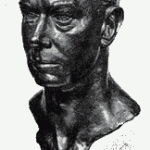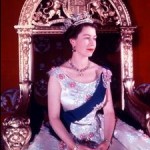Post-War Britain
Category: 20th century The general election of 1945 gave the Labour party led by Clement Attlee for the first time a majority of the popular vote and an overwhelming parliamentary majority. The result was less a rebuke of Churchill’s wartime leadership than an expression of approval of the party’s role in the war, and of hope that it would bring more prosperity.
The general election of 1945 gave the Labour party led by Clement Attlee for the first time a majority of the popular vote and an overwhelming parliamentary majority. The result was less a rebuke of Churchill’s wartime leadership than an expression of approval of the party’s role in the war, and of hope that it would bring more prosperity.
The government launched many important programmes in an effort to restore the country’s economy that had suffered considerably during the World War II. The Labour Party remained in power until 1951 and converted Britain to a welfare state. The National Insurance Act of 1946 was a consolidation of benefit laws involving maternity, disability, old age, and death, as well as assistance if unemployed. In 1948 the National Health Service was set up. Everybody was entitled to free medical care. Both measures were widely popular. The Labour government also began the nationalization of private industries. The coal industry, gas, electricity, the railroads, most airlines, as well as the Bank of England were taken over by the state. In 1948 the delaying powers of the House of Lords were reduced from two years to one. The Labour government also eliminated the last remnants of plural voting when a person could vote in more than one constituency.
These changes were instituted in the midst of a post-war era of austerity. The national debt had tripled, and for the first time since the 18th century Britain had become a debtor nation. With the end of the US lend-lease aid in 1945, the British import had risen abruptly long before military demobilization and reconversion to peacetime industry had been accomplished. Wartime regulations, therefore, had been kept food rationing in 1946 and 1947 was more restrictive than during the war.
In 1949 Britain joined other Western powers in the North Atlantic Treaty Organization (NATO). That step was done when it became clear that the USSR was converting all of Eastern Europe into a Soviet sphere.
The late 1940′s witnessed the beginning of decolonization. The Labour government granted independence to India and Pakistan in 1947, and to Burma and Ceylon in 1948.
The Labour government accomplished their programme of social reform, and thus became less popular. It had done a lot but could not do any more. Besides, it was quite difficult to finance the welfare state. Perhaps, this was the reason why the general election of 1951 enabled the Conservatives under Winston Churchill to get the parliamentary majority.
The early 1950′s brought steady economic recovery. Housing construction boomed and international trade flourished. The post-war regulation was dismantled. Jobs remained plentiful. In fact there was so much work to be done that people from the Caribbean and South Asia were encouraged to move to Britain. The Conservatives did not attempt to reverse the welfare programme launched by the Labour government. However, they denationalized iron and steel industries.
With a veteran statesman heading the British government, the accession of a young queen in 1952 drew the world’s attention to London.
 When her father King George VI died Queen Elizabeth II was in Kenya with her husband, en route for Australia and New Zealand. On 7 February 1952 she returned to England and was met by her Prime Minister, Sir Winston Churchill and the Leader of the Opposition, Mr. Attlee.
When her father King George VI died Queen Elizabeth II was in Kenya with her husband, en route for Australia and New Zealand. On 7 February 1952 she returned to England and was met by her Prime Minister, Sir Winston Churchill and the Leader of the Opposition, Mr. Attlee.
1953 saw the Queen’s coronation, a chilly but moving event of which the romance was heightened by the news that Everest had been conquered by a party led by Colonel Hunt. In 1955 Sir Winston Churchill laid down the burden of premiership, handling it over to Sir Anthony Eden, and a General Election confirmed the Conservatives in power. Churchill’s successor led his party to a second election victory in the spring of 1955.
In July 1956 the president of the Egyptian Republic, Colonel Nasser, let it be known that his regime had nationalized the Suez Canal. British forces had been withdrawn from the region only a year earlier, and an Anglo-French reoccupation in 1956 was halted by Soviet-US pressure. The episode led both to the loss of much of Britain’s remaining influence in the Middle East and to Eden’s resignation.
Eden’s successor, Harold Macmillan, presided over a period of economic revival. In 1959 he led the Conservatives to their third successive election victory — the fourth time in a row that the party gained parliamentary seats. It should be mentioned that the general election of 1959 increased the Conservative majority in the House of Commons.
The British were satisfied with their government. People began to enjoy the benefits of higher incomes. Television spread throughout the country, and the BBC and ITV companies gave viewers a choice between channels. Personal cars became common, and the government launched the programme to improve the road system. In 1959 the first British motorway was opened.
In Africa, Macmillan’s government followed a deliberate policy of decolonization. The Sudan had already become independent in 1956, and during the next seven years Ghana, Nigeria, Somalia, Tanzania, Sierra Leone, Uganda, and Kenya followed suit. Most of these states remained members of a highly decentralized multiracial Commonwealth, but the Union of South Africa, dominated by a white minority of Boer descent, left the Commonwealth in 1961 and declared itself a republic. Independence was also given to Malaysia, Cyprus, and Jamaica during Macmillan’s tenure.
In 1963 Harold Macmillan resigned the premiership and was succeeded by Alec Douglas-Home. In 1964, however, the Labour government headed by Harold Wilson came into power.
